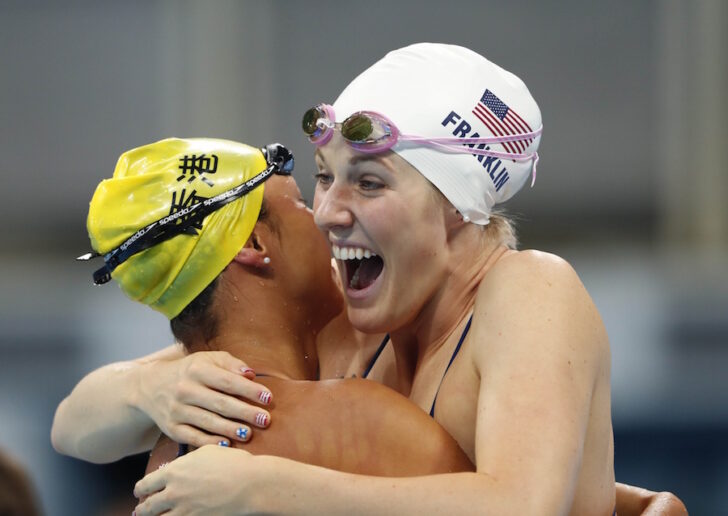Missy Franklin is my hero.
Other than rooting for her win, no differently than I root for the Broncos or the Rockies or Nuggets, I didn’t care that she failed to advance to the finals of the 200-meter freestyle yesterday. Don’t get me wrong – I wanted her to win, and I felt for her when she finished 13th among the 16 semifinalists – but I don’t see her any differently than I did before Rio. She is still a hero.
She’s someone every little girl should aspire to be. Heck, every little boy should, too.
In a world that slings around the phrase “put your money where your mouth is,” Missy did that as boldly as anyone I’ve ever seen. Four years ago, she could have cashed in, and I mean in a major way. She was the darling of the country and plenty of Fortune 500 companies would have gladly paid for her association.
Instead, she chose to be a kid. She swam for her high school after winning four gold medals at the Olympics.
“High school swimming is really what sparked my love for team sports,” she told me back in December.
Play the “genie in a bottle” game for a moment. If given any wish in the entire world, what would you choose? Fame and riches are the obvious wishes. But wouldn’t every adult who’s ever felt the grind of life – if they’re being honest – go back and be a kid? For a year? For a month? A day? If you could do it all over again, knowing how good we all had it when we didn’t have a care in the world, wouldn’t you? Back when real-world “stuff” didn’t factor into how well we slept at night?
I think we’d all choose that, wouldn’t we?
Missy did. She got to share a state championship with her friends, teammates and school. She put being an adult on hold. Can you really put a value on that?
I’m sure someone can, actually. I’m positive there’s a sports agency, or a sports-business writer, that could easily calculate the amount of money Missy Franklin turned down after the London Olympics. It’s too easy, now that Franklin won’t come back to Colorado with nearly the same hardware as she did before (she still has chances in the 200 meter backstroke and the 200 meter freestyle relay), to sit around and crunch those numbers. To ask “what if?” To wonder if she made the right choice.
She did.
It’s not as if it was an all-or-none decision. Sure, the window was wide open then, and maybe it’s shut just a bit now, but she’s still made some money along the way. A recent stroll through the Denver and Houston airports reveals that America still loves Missy – as it should, win or lose.
I still believe that years from now, well into whatever successful endeavor Missy Franklin has ventured, she’ll have no regrets. I firmly believe that. She could have made more money turning pro earlier – no question – but in the end, will it really matter?
It shouldn’t. Eight months ago she said, “You know, swimming is one of the most important things in my life, but I’m so much bigger than that as a human being.”
Missy Franklin is a fierce competitor. She wants to win as badly now as she did back in 2012 – maybe worse. But she also has a perspective that’s incredibly refreshing in the world of sports. Not everything is about “the money” or “the medals.”
Perhaps companies should seek her endorsement simply because her understanding of that goes well beyond her years.
Or better yet, just let them endorse her. Period. The problem was never Missy’s choice. The problem is that she had to choose in the first place. Wouldn’t it make sense for the NCAA to make a common sense exception for the rarest of exceptions?
It wouldn’t need to be anything too complex; it could read something like this: “Student athletes representing their country in Olympic competitions may accept monetary compensation and still maintain NCAA eligibility.” How hard is that? Sure, someone could (and will) poke a million holes in that concept, but honestly, wouldn’t the country be happier in general if athletes like Missy Franklin, Jeremy Bloom or Mallory Pugh never had to make a choice, especially one that limits our opportunity to watch them compete? Someone is making money (Cal, in Missy’s case); why not let it be the athlete?
Whether Missy Franklin wins another medal in Rio – or ever – should not matter. She’s a hero, plain and simple.
